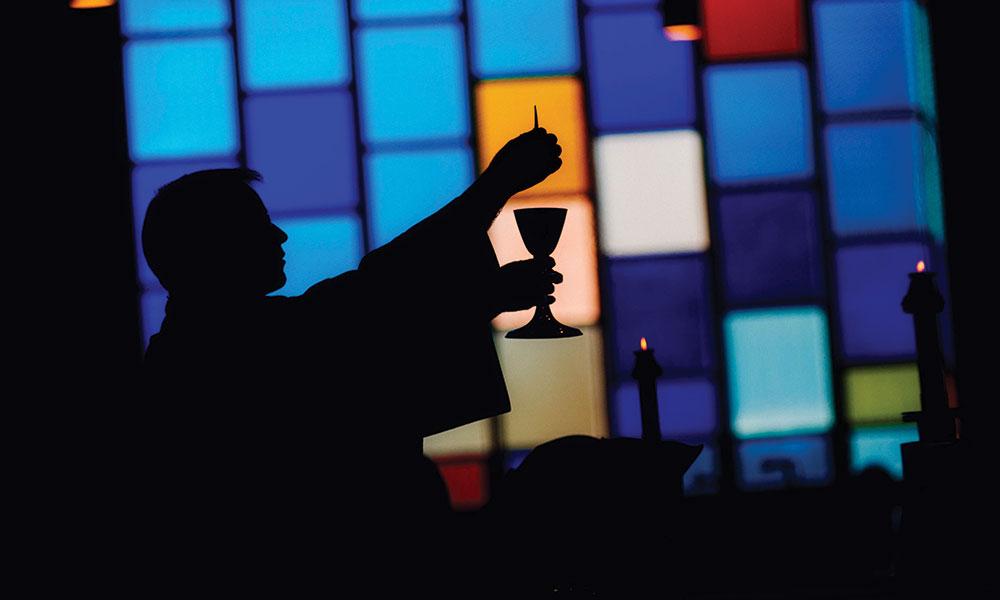
From the Bishop
It Doesn’t Sound Like Much—bread and wine. Yet, besides the collection, these are the only items we present as our offering to the Lord at Mass every Sunday. However, these are powerful symbols. Recall what God said to Adam: “By the sweat of your brow you shall eat bread.” (Genesis 3:19). We can assume that the wine would have required equal effort.
It Doesn’t Sound Like Much—bread and wine. Yet, besides the collection, these are the only items we present as our offering to the Lord at Mass every Sunday. However, these are powerful symbols. Recall what God said to Adam: “By the sweat of your brow you shall eat bread.” (Genesis 3:19). We can assume that the wine would have required equal effort.
In addition to the sacrifice of animals in the temple, God also desired, we read in the Book of Leviticus, bread and wine to be offered. (Leviticus 23) Thus, that which had been a symbol of the sin of Adam was now to become a sign of covenant with God. Bread and wine are basics so much so that God provided the Manna in the desert to keep his people from starving.
In addition, these basic foods form part of our community gathering. When Abraham was to host the heavenly visitors, he provided them with bread, freshly made by Sarah. (Genesis 18:6)Thus, these foods represent not only God’s goodness to us, but also our engagement in hospitality, in community.
Bread and wine also become a form of blessing. After a great victory, Abraham received from Melchizedek gifts of bread and wine. God promised through the prophets, “I am sending you grain, new wine, and oil, and you will be satisfied by them.” (Joel 2:18) These foods, we are told through Zechariah, “Grain will make the young men flourish, and new wine the young women.” (9:17)
It is these offerings which are the gifts of the People of God brought to the altar every Sunday. All too often, when we think of the Mass, we only consider what we will receive—a homily and Holy Communion. But the Mass is also about our offerings, and especially the offerings of our very lives to the Father. Some early Fathers of the Church used to talk about the bread being derived from many grains which are crushed and merged and about the wine coming from many grapes pressed and joined together. What a perfect symbol for all of us who make this offering. We, though many, are brought together and made one in Baptism and it is as one that we offer these simple gifts. We take them up to the altar. Later, these same offerings are going to be taken up by the Lord through the priest and offered to the Father and then given back to us transformed into the Eucharist.
It is fascinating that at the Last Supper there is really little or no mention of other foods for that great festival dinner. One wonders why we do not eat lamb at Mass. However, Jesus became the Lamb of God and it is he whom we consume. Besides, Jesus taught us to pray, “Give us this day our daily bread.” That seems to suffice both for him and then for us.
At each Mass, let us be conscious at the time of the Offertory that we are offering ourselves up with these humble gifts of bread and wine. Our monetary offering or our volunteering in our parishes or our prayers for any and all are also linked up with these basics so that we are placing ourselves on the altar as well. When the priest or deacon puts a drop of water into the wine that is a recognition that Christ himself is taking us up with him as he then moves on to the renewal of the sacrifice of himself to the Father.
